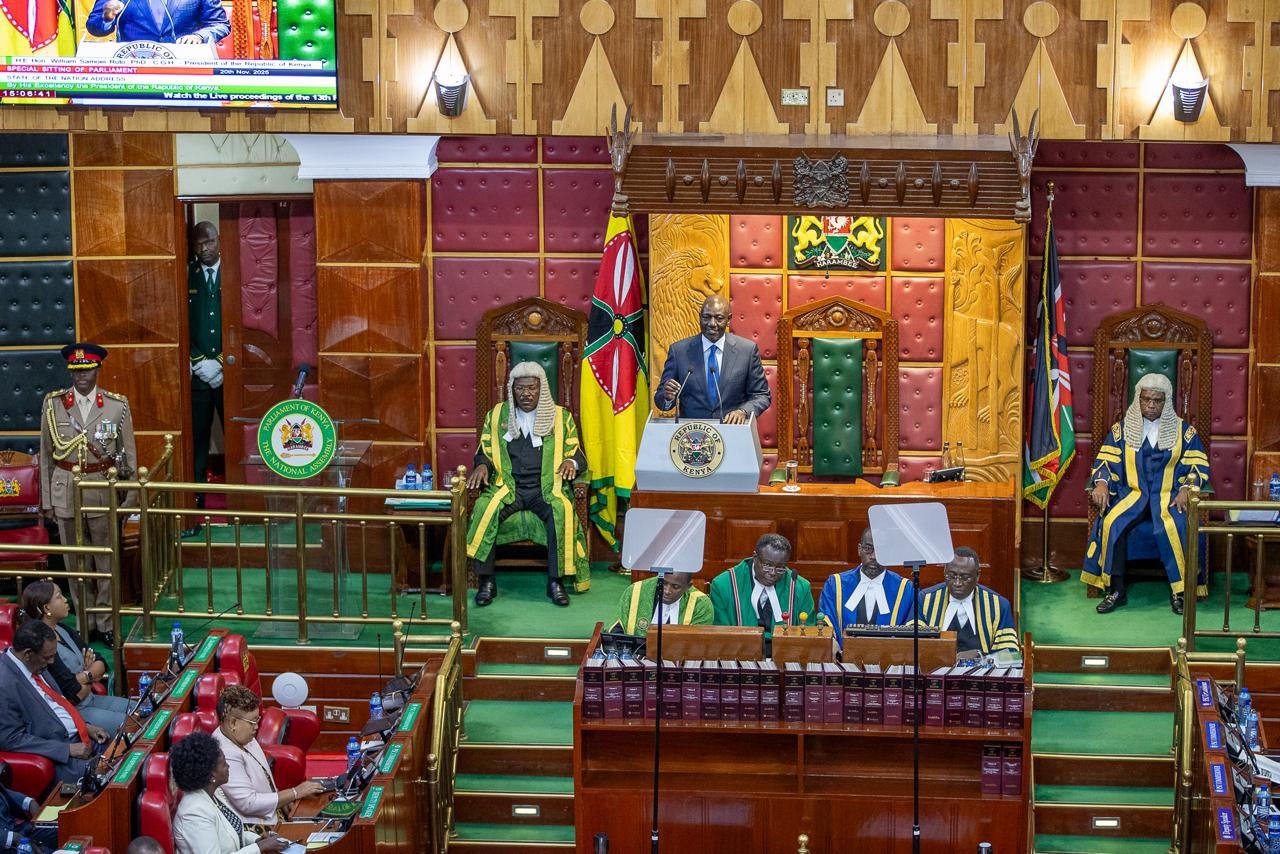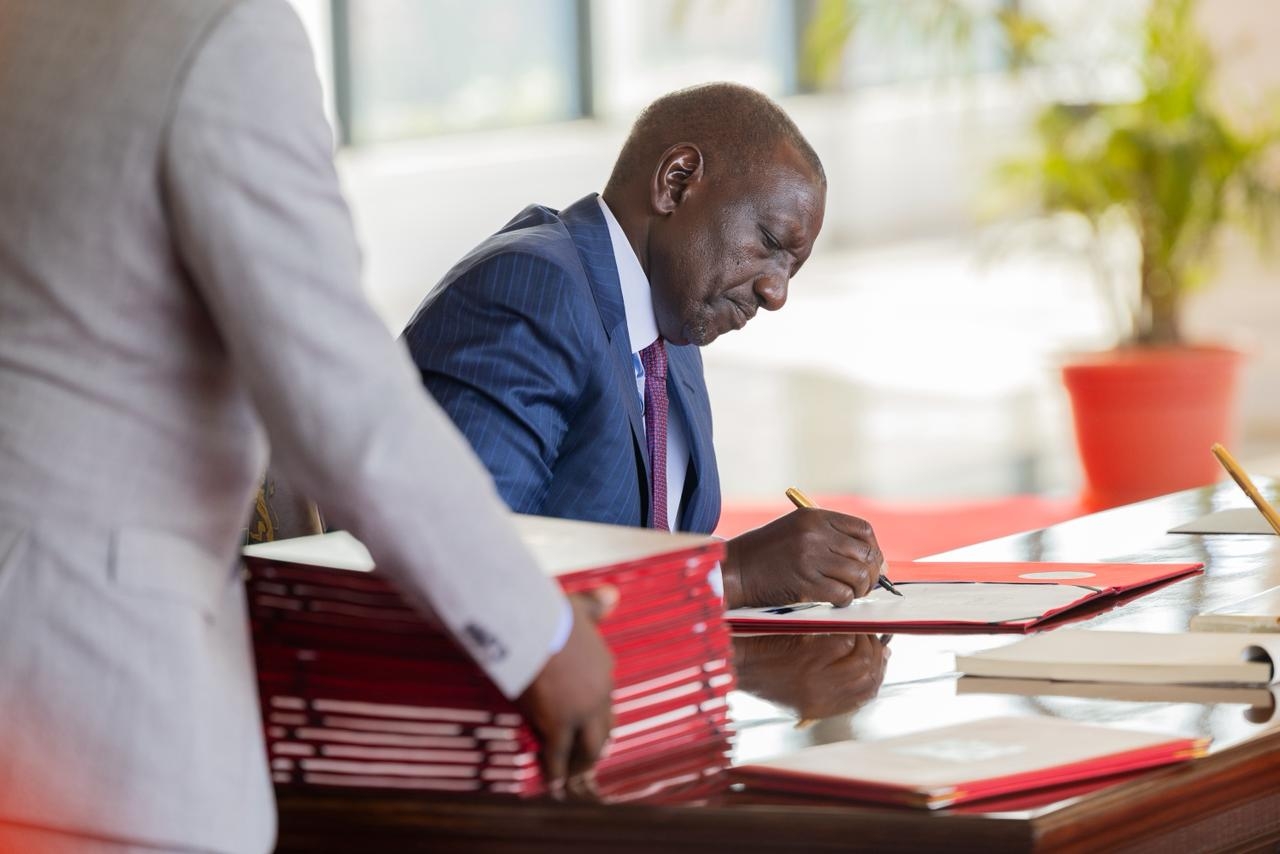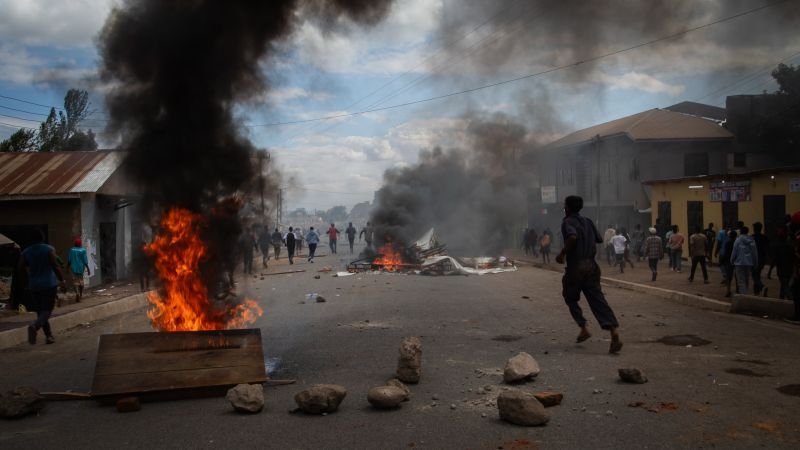Talks of a plan to impeach Kenya's second in command Rigathi Gachagua have resurfaced again, but how difficult or easy is it to impeach a Deputy President?
The Deputy President may be removed from office on the grounds of physical or mental incapacity to perform the functions of the office; or on impeachment.
Articles 144 and 145 of the Kenyan Constitution provide for both ways.
Impeachment can be on the ground of a gross violation of a provision of this Constitution or any other law; where there are serious reasons to believe that the Deputy President has committed a crime under national or international law; or for gross misconduct.
To impeach the Deputy President, MP supported by at least a third of all the members, may move a motion for the impeachment on either of the three grounds.
If at least two-thirds of the National Assembly members support the motion, the National Assembly Speaker shall inform the Senate counterpart of that resolution within two days.
Meanwhile, the Deputy President shall continue to perform the functions of the office of the Deputy President pending the outcome of the impeachment proceedings.
Within seven days after receiving notice of a resolution from the Speaker of the National Assembly, the Speaker of the Senate shall convene a meeting of the Senate to hear charges against the Deputy President.
The Senate, by resolution, may appoint a special committee comprising eleven of its members to investigate the matter.
The special committee appointed above shall investigate the matter. It shall report to the Senate within 10 days whether it finds the particulars of the allegations against the Deputy President to have been substantiated.
The Deputy President shall have the right to appear and be represented before the special committee during its investigations.
The Special Committee may hear representation from the MP who moved the motion in the National Assembly and other lawmakers of the National Assembly.
If the special committee reports that the particulars of any allegation against the Deputy President have not been substantiated, further proceedings shall not be taken.
If the special committee reports that the particulars of any allegation against the Deputy President have been substantiated, the Senate shall, after giving the Deputy President an opportunity to be heard, vote on the impeachment charges.
The Senate shall vote on each impeachment charge of the Motion.
If at least two-thirds of all the members of the Senate vote to uphold any impeachment charge, the Deputy President shall cease to hold office.
If no further proceedings take place when the allegations are unsubstantiated, the Deputy President continues to hold office.
In the case of removal of the Deputy President on grounds of incapacity, an MP supported by at least a quarter of all the members, may move a motion for the investigation of the Deputy President.
The MPs will investigate the Deputy President’s physical or mental capacity to perform the functions of the office.
If a majority of all MPs in the National Assembly support the motion, the Speaker shall inform the Chief Justice of that resolution within two days.
Within seven days after receiving notice of the resolution from the Speaker, the Chief Justice shall appoint a tribunal.
The tribunal will consist of three persons who are qualified to practise medicine under the laws of Kenya, nominated by the body which by law is responsible for regulating the professional practice of medicine; one advocate of the High Court nominated by the body which by law is responsible for regulating the professional practice of advocates; and one person nominated by the Deputy President.
If the Deputy President is unable to nominate the person he or she is required to nominate, the person shall be nominated by a member of the family of the Deputy President; or a close relative of the Deputy President.
The tribunal shall inquire into the matter and, within 14 days after the appointment, report to the Chief Justice and the Speaker of the National Assembly.
The Speaker shall ensure the report of the tribunal is tabled before the National Assembly within seven days of receiving it.
The report of the tribunal shall be final and not subject to appeal. If the tribunal reports that the Deputy President is capable of performing the functions of the office, the Speaker of the National Assembly shall announce so in the National Assembly.
If the tribunal reports that the Deputy President is incapable of performing the functions of the office, the National Assembly shall vote on whether to ratify the report.
If a majority of all the members of the National Assembly vote in favour of ratifying the report, the Deputy President shall cease to hold office.












